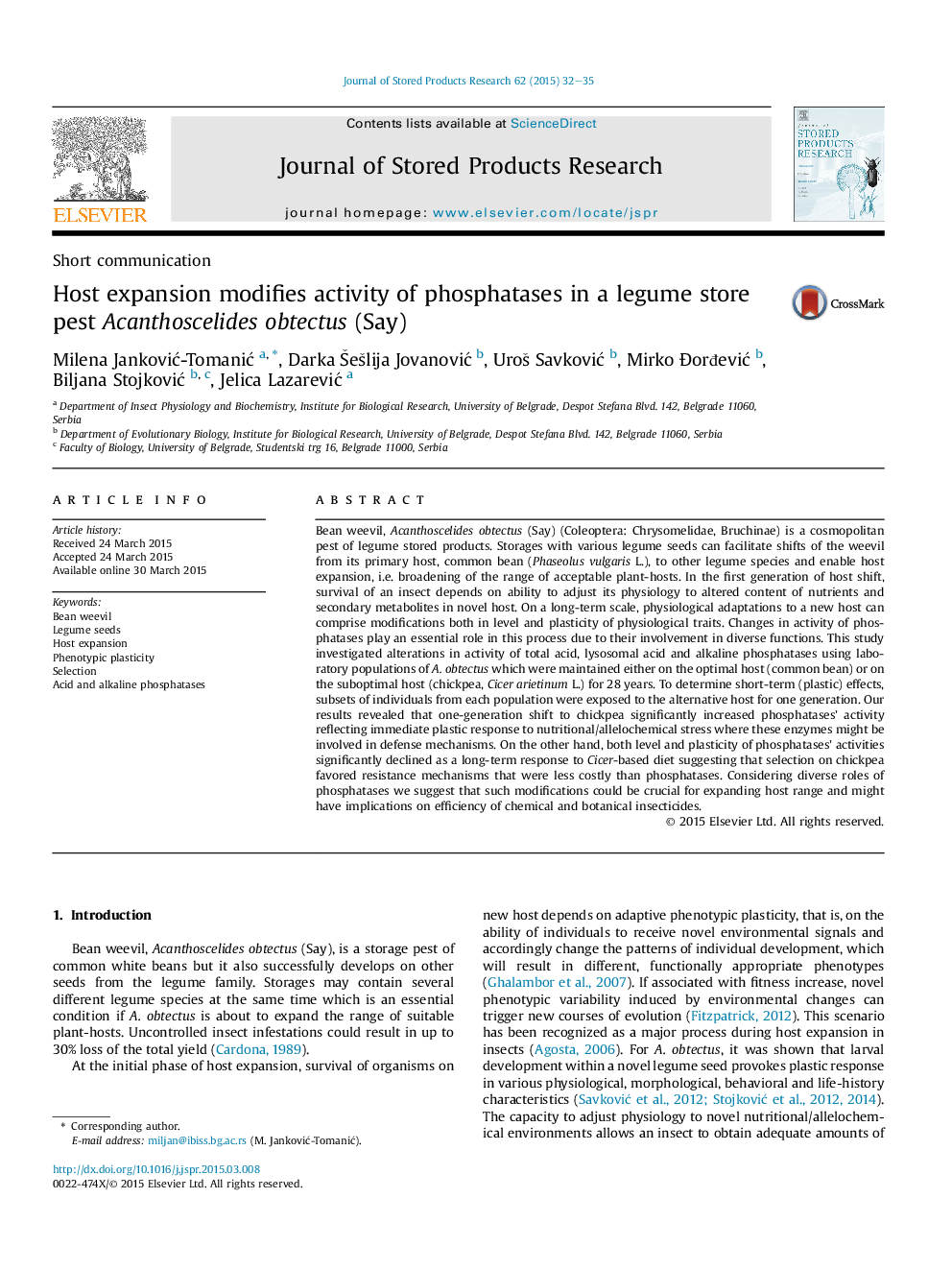| Article ID | Journal | Published Year | Pages | File Type |
|---|---|---|---|---|
| 4517046 | Journal of Stored Products Research | 2015 | 4 Pages |
•Bean weevil (Acanthoscelides obtectus, Say) is a worldwide legume stored pest.•We studied effects of two legume hosts on activity of acid and alkaline phosphatases.•One-generation shift from bean to chickpea elevated phosphatases' activities in males.•Level and plasticity of enzyme activities declined after selection on suboptimal host.•Such modifications might affect host expansion and efficiency of pest control agents.
Bean weevil, Acanthoscelides obtectus (Say) (Coleoptera: Chrysomelidae, Bruchinae) is a cosmopolitan pest of legume stored products. Storages with various legume seeds can facilitate shifts of the weevil from its primary host, common bean (Phaseolus vulgaris L.), to other legume species and enable host expansion, i.e. broadening of the range of acceptable plant-hosts. In the first generation of host shift, survival of an insect depends on ability to adjust its physiology to altered content of nutrients and secondary metabolites in novel host. On a long-term scale, physiological adaptations to a new host can comprise modifications both in level and plasticity of physiological traits. Changes in activity of phosphatases play an essential role in this process due to their involvement in diverse functions. This study investigated alterations in activity of total acid, lysosomal acid and alkaline phosphatases using laboratory populations of A. obtectus which were maintained either on the optimal host (common bean) or on the suboptimal host (chickpea, Cicer arietinum L.) for 28 years. To determine short-term (plastic) effects, subsets of individuals from each population were exposed to the alternative host for one generation. Our results revealed that one-generation shift to chickpea significantly increased phosphatases' activity reflecting immediate plastic response to nutritional/allelochemical stress where these enzymes might be involved in defense mechanisms. On the other hand, both level and plasticity of phosphatases' activities significantly declined as a long-term response to Cicer-based diet suggesting that selection on chickpea favored resistance mechanisms that were less costly than phosphatases. Considering diverse roles of phosphatases we suggest that such modifications could be crucial for expanding host range and might have implications on efficiency of chemical and botanical insecticides.
